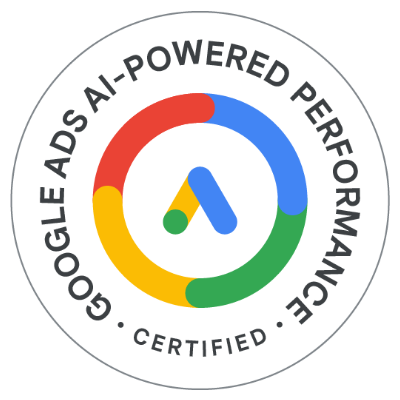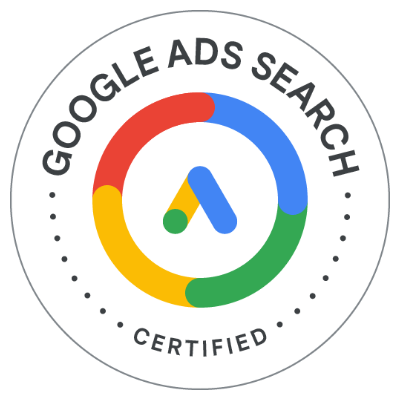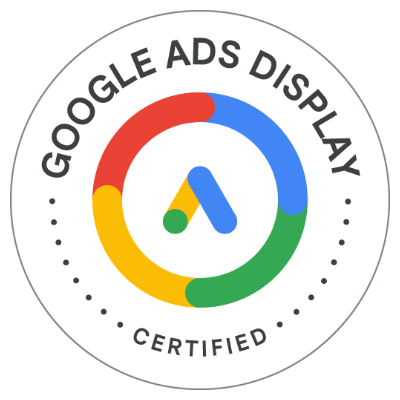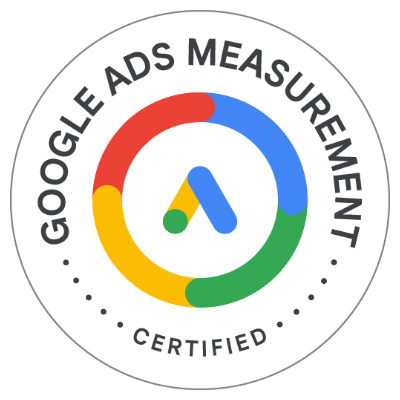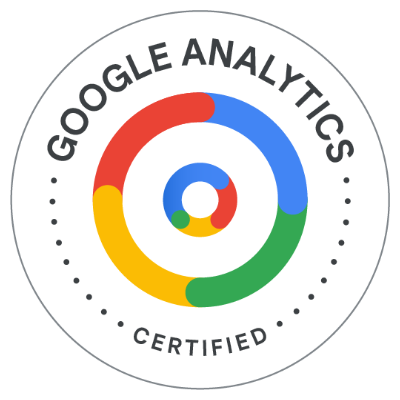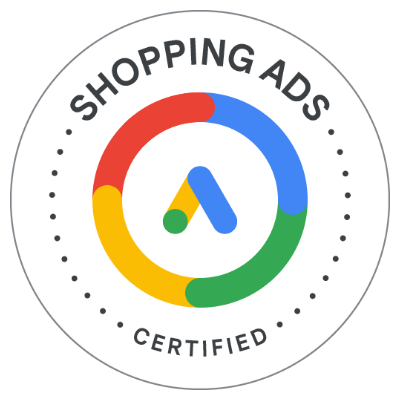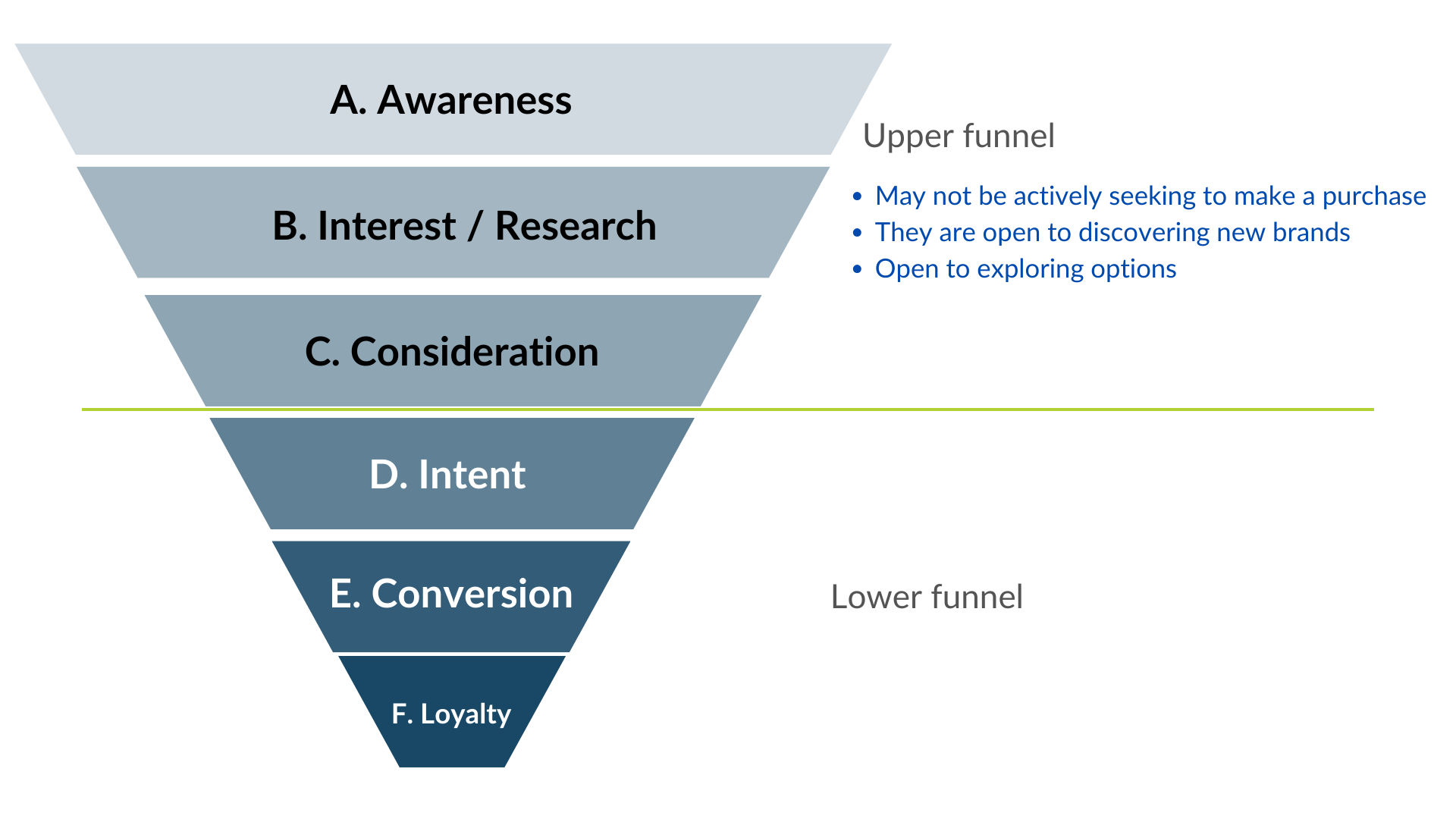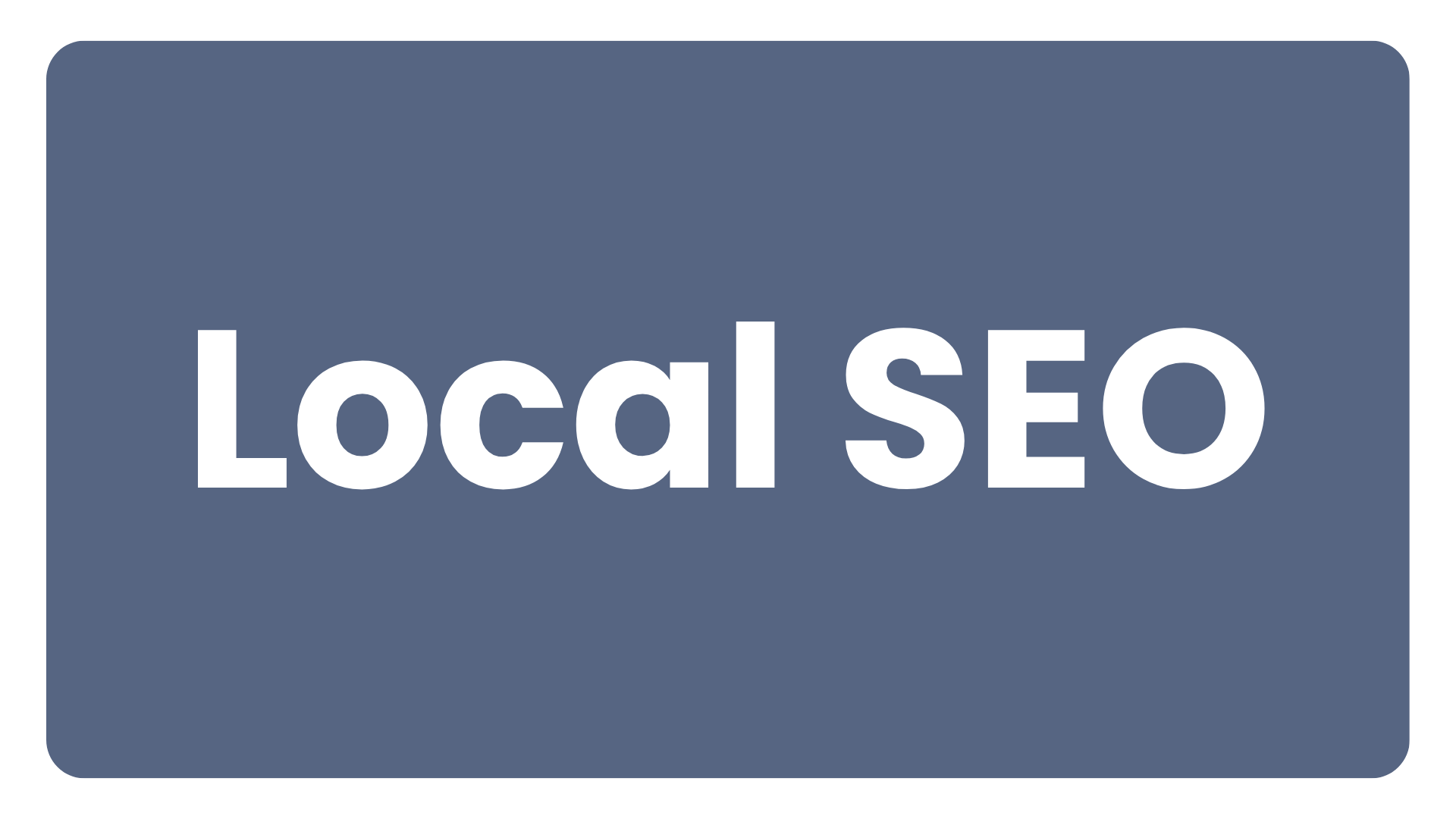A 2024 Guide to Local Search Engine Optimization
Local SEO is beneficial for a business who has recently launched a website or for existing businesses wanting to increase both online and physical traffic. This article can be a guide for the ambitious do-it-yourself-er (DIY) and for those looking to better understand SEO in general.
How can SEO help me?
Local SEO is meant to help an organization get found in geographic-based searches. These are searches towards the bottom of the buying funnel. The prospects knows what they want and are looking for someone local. Local SEO helps you get found on both the Google, Apple and Bing Maps and in online directories of local vendors. Think of the search that relates to your business that ends with "near me'. Do you show up in the list of the top 3 vendors who provide this service?
Local SEO helps businesses improve their online visibility in specific geographic locations, making it easier for potential customers to find them when searching for products or services locally. So how do you know if your business needs local SEO? Here are some signs that indicate you would benefit:
The 4 Categories of Search Intent
When it comes to search intents, there are four main categories that users typically fall into: Commercial, Informational, Transactional, and Directional. Understanding these different search intents can help businesses tailor their SEO strategies to better meet the needs of potential customers and improve their visibility in search engine results pages.
Commercial Intent: This type of search is made by users who are looking to make a purchase or interact with a business in some way. For example, someone searching for "best local pizza delivery" has commercial intent as they are likely looking to order food from a local pizza place.
Informational Intent: Users with informational intent are seeking answers or information on a particular topic. For instance, someone searching for "how to change a flat tire" is looking for information on how to perform a specific task.
Transactional Intent: This type of search indicates that the user is ready to make a transaction or complete a specific action. An example of this would be someone searching for "buy iPhone 14 online" as they are looking to purchase the product.
Directional Intent: Users with directional intent are looking for specific locations or directions to reach a place. For instance, someone searching for "nearest gas station" is seeking directions to the closest gas station from their current location.
How do I know if my business needs local SEO?
Your business primarily caters to a local audience: If your target audience consists of people who live or work within a specific geographic location, your business depends on customers coming to your location or you deliver your products and services to someone's home or place of business.
Competition in your area: If there are competitors in the area that compete for the same clients with similar services.
Your business has multiple locations: If you have multiple physical locations or serve different areas within a broader region, have branches or service areas, Local SEO allows prospects to find the nearest branch easily.
Decreased foot traffic or sales: Are you experiencing lower foot traffic to your physical store or declining sales? It could be because potential customers are having trouble finding information about your business online.
Lack of visibility on Google Maps: Many people rely on Google Maps to find nearby businesses when they need products or services urgently. If your business is not appearing prominently on Google Maps listings or is missing from the map altogether, it's a clear indication that you need to focus on local SEO efforts.
Limited online presence: If your business has little to no online presence, you're likely missing out on valuable opportunities to connect with potential customers. Local SEO not only helps improve your website's visibility but also optimizes other online channels like social media profiles and review sites. Establishing a strong online presence through local SEO can significantly boost your brand awareness and credibility among the local community.
If any of these resonate with you, it's time to explore local SEO. By implementing some of the following effective strategies, you can increase your online visibility, drive more organic traffic, and ultimately attract more customers from within your target area.
Understanding Different Types of SEO
There are three (3) distinct types of Search Engine Optimization that you should plan to address. Each tactic has a specific role and purpose. Let’s explore what you need to know.
1. Local SEO
Local SEO is it's a vital tool for businesses aiming to capture the attention of a target audience in their immediate vicinity. Local SEO ensures that when a target audience searches for products or services in their area, your business appears prominently with all the correct information including images and videos to help them understand the value of what you offer.
As of 2024, near me searches continue to have a significant impact on businesses and consumer behavior. With the increasing use of mobile devices and smart technology, people are relying more on local search queries to find products and services nearby.
Near me searches have become a common practice for consumers looking for immediate solutions or making quick decisions. This trend has led to an increase in same-day visits and purchases from local businesses.
Businesses that optimize their online presence for local SEO and cater to near me searches are more likely to attract customers who are actively seeking their products or services in the immediate vicinity. By appearing prominently in search results, businesses can drive more foot traffic, increase sales, and build brand awareness within their target area.
The impact of near me searches in 2024 highlights the importance of local SEO for businesses wishing to connect with local customers, drive conversions, and stay competitive in today's digital landscape.
Focus on claiming and optimizing business profiles such as Google Business Profile
Post content to your business profiles on a consistent monthly basis
Create business listings and citations on the top 400+ business directories
Get listed on the big 3 data aggregators
Get listed on Voice Search such as Siri, Alexa and Google Home
Focus on Maps and "Near me" type of searches
Google Certified Partner
Watch the ‘Mastering SEO and Advertising Basics’ Webinar
Education is power! Our Google Certified Experts hosted a free 1-hour Zoom class where they covered the basics of SEO and advertising.
Whether you're a small business looking to boost your online presence or a marketing professional wanting to enhance your skills, this class is perfect for beginners and intermediate learners.
Don't miss this opportunity to sharpen your digital marketing skills.
2. Technical SEO
Technical SEO refers to the optimization of the technical aspects of a website to improve its search engine rankings and overall performance. Technical SEO ensures that search engines can easily crawl and index your website, leading to better visibility in search results. It also helps improve user experience by ensuring that your website loads quickly and is easy to navigate on all devices. By addressing technical SEO issues, businesses can enhance their online presence and attract more organic traffic to their website. This includes optimizing elements such as:
Title tags: Writing unique, descriptive title tags for each page that accurately reflect the content and include relevant keywords.
Meta descriptions: Writing compelling meta descriptions that summarize the page's content and encourage users to click through from search results.
Header tags: Using header tags (H1, H2, H3, etc.) to structure content and make it easier for both users and search engines to understand.
URL structure: Creating descriptive and user-friendly URLs that include targeted keywords and accurately reflect the page's content.
Internal linking: Linking between related pages on your website to improve navigation, distribute link equity, and help search engines understand the structure of your site.
Image optimization: Optimizing images by using descriptive filenames, alt text, and captions to improve accessibility and enhance SEO.
By implementing these on-page SEO strategies effectively, businesses can improve their search engine rankings, increase organic traffic, and provide a better user experience for visitors to their website.
1. User experience: A slow-loading website can frustrate users and lead them to abandon the site, resulting in a high bounce rate. Search engines like Google take user experience into account when ranking websites, so a fast-loading website can improve user engagement and increase the chances of visitors staying on your site.
2. Mobile responsiveness: With an increasing number of users accessing websites on mobile devices, having a fast-loading mobile site is essential for SEO. Google prioritizes mobile-friendly websites in its search results, so optimizing your website speed for mobile devices can help improve your rankings.
3. Crawling and indexing: Search engine bots crawl websites to index their content and determine their relevance to search queries. A slow-loading website can hinder the crawling process, leading to incomplete indexing and potentially lower rankings in search results. Visit Google Search Console for more.
4. Page load time: Page load time is one of the factors that Google considers when ranking websites. A faster loading speed can positively impact your SEO rankings, while a slower loading speed can have a negative effect on your visibility in search results. Visit Google Search Essentials for more.
Overall, website speed is an important factor in SEO as it influences user experience, mobile responsiveness, crawling and indexing, and ultimately affects how well your site ranks in search engine results pages. By optimizing your website's speed, you can improve your chances of ranking higher and attracting more organic traffic to your site.
3. Keywords and SEO-optimized Content
SEO-optimized content and keywords play a crucial role in improving a website's search engine rankings. By incorporating relevant keywords into your content, you make it easier for search engines to understand what your website is about and rank it accordingly for relevant search queries.
When you create high-quality, SEO-optimized content that includes targeted keywords, you increase the likelihood of your website appearing in search results when users are looking for information related to those keywords. This can drive organic traffic to your site and attract potential customers who are actively searching for products or services like yours.
SEO-optimized content and keywords contribute to SEO by making your website more relevant and authoritative in the eyes of search engines. By strategically incorporating targeted keywords into your content and following best practices for on-page optimization, you can enhance your online visibility, attract more organic traffic, and ultimately improve your website's search engine rankings.
Watch A Local SEO Presentation
The importance of Local SEO lies in its ability to drive targeted traffic to your website and physical location. It's tailored to increase your visibility for geographically-related searches, particularly those with "near me" in the query.
This targeted approach means attracting not just any traffic, but the right traffic – people who are actively seeking what you offer and are most likely to convert into customers.
Watch this presentation delivered by one of our product team members.
Where to get started?
Here are some typical steps that local businesses can take to get started with optimizing their business for local search.
1. Claim and optimize your business listing: This is one of the most important steps in local SEO. Make sure your business information is accurate, including your address, phone number, website, and business hours.
2. Optimize your website for local keywords: Include location-specific keywords throughout your website content, meta descriptions, and title tags to help search engines understand where you are located.
3. Get listed in online directories: Make sure your business is listed on popular online directories like Yelp, Yellow Pages, and TripAdvisor. This can help improve your visibility in local search results.
4. Encourage customer reviews: Positive reviews can boost your credibility and improve your rankings in local search results. Encourage satisfied customers to leave reviews on platforms like Google My Business and Yelp.
5. Create localized content: Develop blog posts or pages on your website that focus on topics relevant to your local community. This can help attract local visitors to your site.
Let’s take a deeper dive into what each of these mean and how to do it for the DIY-types out there.
What Does it Mean to Claim and Optimize your Business Listing?
Claiming your business listing means taking ownership of your business's information on platforms like Google, Bing and Apple. This allows you to control the accuracy and completeness of the information displayed about your business, including address, phone number, website, and hours of operation.
To claim and optimize your business listing, follow these steps:
Go to Google Business Profile, Bing for Places and sign in or create an account.
Enter your business name and address to search for your listing.
If your business is already listed, claim it by following the verification process provided by Google. This usually involves receiving a postcard with a verification code at your business address.
Once verified, update your listing with accurate information, including photos, a description of your services or products, and any special offers or promotions.
Regularly monitor and update your listing to ensure it reflects any changes to your business.
By claiming and optimizing your business listing on platforms like Google My Business, you can improve your visibility in local search results and attract more customers in your area.
Why should we care about Bing for Places?
Bing Places for Business is Microsoft's equivalent of Google Business Profile, and it plays a significant role in local SEO. While Google dominates the search engine market, Bing still has a considerable share of the search engine market, especially in certain demographics.
By claiming and optimizing your business listing on Bing Places for Business, you can expand your reach to potential customers who use Bing as their primary search engine. This can help increase your visibility in local search results and drive more targeted traffic to your website and physical location.
As of 2023, it is estimated that around 6-7% of search traffic is routed through Bing. While Google still dominates the search engine market with over 90% market share, Bing continues to have a significant presence and should not be overlooked when it comes to local SEO efforts.
In short, caring about Bing for Places is important because it allows you to tap into a different segment of the online audience and maximize your local SEO efforts across multiple platforms.
Why should we care about Apple Business Connect?
Apple Business Connect is Apple's platform for businesses to manage your presence across the entire Apple ecosystem. By claiming and optimizing your business listing on Apple Business Connect, you can ensure that your business information is accurate and up-to-date on Apple Maps, making it easier for potential customers using Apple devices to find and contact your business. This can improve your visibility in local search results and drive more traffic to your physical location or website. Additionally, optimizing your business listing on Apple Business Connect can help enhance the overall customer experience and credibility of your business.
As of 2023, it is estimated that a small percentage of search traffic is routed through Apple and Apple Maps. While Google and Bing dominate the search engine market, Apple and Apple Maps have a smaller share of search traffic. It is important to optimize your business listing on Apple Business Connect to reach potential customers using Apple devices, but the majority of search traffic still comes from Google and Bing.
To claim your Apple Business Connect profile, follow these steps:
1. Go to the Apple Business Connect website and sign in with your Apple ID.
2. Search for your business listing on Apple Maps and select it.
3. Click on the "Claim this business" button.
4. Verify your ownership of the business through a verification process that may include receiving a phone call or email from Apple.
5. Once verified, you can update your business information including hours of operation, contact information, photos, and more.
6. Regularly monitor and update your listing to ensure it reflects any changes to your business.
It is important for people to know that optimizing their business listing on Apple Business Connect can improve their visibility on Apple Maps, making it easier for potential customers using Apple devices to find them. While search traffic through Apple is smaller compared to Google and Bing, having a presence on Apple Maps can still be beneficial for reaching a specific segment of the audience who use Apple devices. By keeping their profile updated with accurate information, businesses can enhance their credibility and provide a better customer experience for those searching for them on Apple Maps.
SEO Tools vs Purpose
| Tool | Description | Purpose |
|---|---|---|
| Google Maps | A map service by Google showing places, roads, and routes. | Helps people find your business location easily, making you more visible in local searches. |
| Google Business Profile | A tool to manage your business info on Google. | Makes your business more known online and helps customers find and review your business. |
| Business Listings | Places where your business info is listed online. | Gets your business info out there and helps improve how you show up in searches. |
| Search Engines (Google, Bing, etc.) | Websites like Google and Bing where people search for things, including local businesses. They use special search algorithms to show the best results for what people are looking for. | Brings more people to your website by making sure you show up in local searches. |
| Bing Places | A tool for managing your business listing on Bing. | Makes your business more visible to people who use Bing Maps to find local places. |
| Apple Business Connect | A service that shows your business info on Apple Maps and the entire spectrum of Apple devices. | Helps Apple users find your business and increases visits to your location. |
| Reputation Management | Keeping track of and improving what people say about your business online. | Builds trust with potential customers and influences their decision to choose your business. |
| Google Search | Making your business show up and look good in Google search results. | Helps your business get noticed more in Google searches, bringing in more customers |
Google Business Profile: Your Key to Local Visibility
In a significant update, Google has renamed Google My Business (GMB) to Google Business Profile (GBP), reflecting a broader shift in their approach to local business listings. While "Google My Business" is still a common term, it now refers to the Google Business Profile. This change aims to streamline the process of managing business profiles directly on Google Search and Maps.
Google Business Profile (formerly Google My Business) optimization remains a critical element of effective Local SEO. It serves as your online storefront, often being the first interaction potential customers have with your business when they search online. A well-optimized Google My Business profile delivers crucial information such as your NAP (Name, Address, & Phone Number) as well as your business hours, location, and customer reviews, simplifying the process for local customers to discover and choose your services.
Essential components of GBP optimization:
Keeping your business information, including your NAP, accurate and current.
Uploading high-quality images of your business.
Monthly posting updates
Actively encouraging and responding to customer reviews.
Mastering Local Keywords: The Heart of Local SEO
The right Local SEO Keyword Research can make or break your Local SEO strategy. It's about understanding what your local customers are searching for and how they're searching for it. This involves not just identifying the right keywords but understanding the intent behind them to tailor your content accordingly.
Effective local keyword strategies include:
Focusing on geo-specific keywords.
Incorporating long-tail keywords for more targeted reach.
Analyzing search trends in your local area.
Oh Ya! Marketing excels in uncovering the most impactful local keywords for your business. We delve deep into local search trends to ensure your website speaks directly to your local audience's needs.
Leveraging Customer Reviews for Local SEO Success
In the realm of Local SEO, Positive Reviews are gold. They not only enhance your reputation but also signal to search engines that your business is trustworthy and relevant. Managing and leveraging these reviews, therefore, becomes a critical component of your Local SEO strategy.
Effective review management includes:
Encouraging satisfied customers to leave reviews.
Responding promptly and professionally to all reviews.
Utilizing positive reviews in your marketing materials.
Oh Ya! Marketing understands the power of customer reviews. We help you implement strategies to acquire and manage reviews, turning customer feedback into a potent tool for Local SEO.
Looking to boost your reputation with positive reviews? Reach out to Oh Ya! Marketing for strategic review management.
Your Google Certified Partner
Improve Your Online Visibility
At Oh Ya! Marketing, we understand the nuances of Local SEO and its impact on your business. Our expertise lies in optimizing your online presence to ensure you're not just visible, but a top choice in your local community.
Building Your Local Presence with Citations
Local SEO Citations Management plays a pivotal role in strengthening your local online presence. Citations, which are mentions of your business name and address on other websites, help improve your local search engine rankings and validate your business's credibility.
Key strategies for effective citation management include:
Ensuring consistency in your business's NAP (Name, Address, Phone Number) across all listings.
Identifying and listing your business in relevant local and industry-specific directories.
Regularly updating your listings to reflect any changes in your business.
At Oh Ya! Marketing, we meticulously manage your local citations, ensuring they are accurate and consistent across the web. This not only boosts your SEO efforts but also helps potential customers find accurate information about your business.
On-Page Optimization: Tailoring Your Website for Local Audiences
Effective Local SEO Content Creation involves more than just inserting keywords into your website's content. It's about creating content that resonates with your local audience, answers their questions, and reflects local search trends. On-page optimization for Local SEO includes optimizing your titles, meta descriptions, content, and images to appeal to your local market.
Essential on-page optimization techniques include:
Creating locally relevant content that addresses the needs and interests of your local audience.
Optimizing your website's meta tags with local keywords.
Ensuring your website is user-friendly and mobile-responsive.
At Oh Ya! Marketing, we specialize in crafting and optimizing content that not only ranks well but also genuinely engages and converts your local audience.
Off-Page Strategies: Link Building and Reputation Management
Off-page SEO, particularly Link Building and online reputation management, is crucial in building your business's authority and trustworthiness in the local market. Effective off-page strategies can significantly impact your local search rankings and overall online visibility.
Key off-page strategies include:
Building high-quality backlinks from reputable local sources.
Engaging with your community through social media and local events.
Managing and leveraging online reviews to build a positive reputation.
Oh Ya! Marketing understands the intricacies of off-page SEO. We help you build a strong local link profile and manage your online reputation to enhance your Local SEO efforts.
Measuring Success: Local SEO Analytics and Reporting
In the world of Local SEO, Local SEO Analytics Tools are indispensable for measuring the success of your strategies. Understanding how your local SEO efforts are performing is key to making informed decisions and adjustments. This involves tracking metrics like local search rankings, website traffic from local searches, and conversion rates from local customers.
Effective analytics and reporting strategies include:
Utilizing advanced tools to track and analyze local search performance.
Regularly reviewing and interpreting data to understand the impact of your Local SEO efforts.
Making data-driven decisions to refine and optimize your Local SEO strategies.
At Oh Ya! Marketing, we provide comprehensive analytics and reporting services, giving you clear insights into your Local SEO performance and guiding you towards more effective strategies.
Need clarity on your Local SEO performance? Reach out to Oh Ya! Marketing for expert analytics and reporting services.
Mobile Optimization: Reaching Local Customers on the Go
With the increasing prevalence of mobile searches, Mobile Optimization has become a critical component of Local SEO. Ensuring that your website is mobile-friendly and provides a seamless experience for users on smartphones and tablets is essential for capturing the local mobile audience.
Key mobile optimization strategies include:
Designing a responsive website that adapts to different screen sizes.
Improving page loading speeds for mobile users.
Creating mobile-friendly content that is easy to read and interact with on smaller screens.
Oh Ya! Marketing specializes in optimizing websites for the mobile user, ensuring that your local audience enjoys a flawless experience on your site, no matter the device they use.
Want to capture the local mobile market? Contact Oh Ya! Marketing for top-notch mobile optimization services.
Addressing Common Local SEO Challenges
Local SEO can be fraught with challenges, from navigating Google's ever-changing algorithms to dealing with local competition. Local SEO Challenges can range from technical issues to content and link-building strategies. Understanding and overcoming these challenges is key to a successful Local SEO campaign.
Common challenges and solutions include:
Adapting to algorithm changes and staying updated with SEO best practices.
Developing unique content that stands out in the local market.
Building quality local backlinks amidst stiff competition.
At Oh Ya! Marketing, we're adept at identifying and addressing the unique challenges your business may face in its Local SEO journey. We provide tailored solutions to ensure your Local SEO strategy is robust and effective.
Staying Ahead: Advanced Local SEO Strategies
In the dynamic landscape of Local SEO, staying ahead means employing Advanced Local SEO Tactics that go beyond the basics. These strategies are designed to give your business a competitive edge and ensure you're not just keeping up but leading in your local market.
Advanced strategies include:
Utilizing hyperlocal targeting to reach specific neighborhoods or areas.
Implementing schema markup for enhanced search result visibility.
Exploring voice search optimization for local queries.
Oh Ya! Marketing is at the forefront of these advanced strategies, constantly innovating to keep your business ahead in the local SEO game.
Success Stories: Local SEO Transformations by Oh Ya! Marketing
Nothing speaks louder than success, and at Oh Ya! Marketing, we have a track record of transforming businesses through effective Local SEO. Our Local SEO Case Studies showcase real-life examples of how we've helped businesses increase their local search visibility, attract more customers, and grow their revenue.
These success stories include:
Small businesses that have become local market leaders.
Multi-location businesses achieving uniform success across all sites.
Businesses that have successfully navigated and overcome Local SEO challenges.
Inspired to create your own success story? Reach out to Oh Ya! Marketing and let us guide you to Local SEO success.
In conclusion, Local SEO is an indispensable tool for any business looking to make an impact in its local market. From optimizing your Google My Business profile to mastering local keywords and beyond, the right Local SEO strategies can transform your business.
At Oh Ya! Marketing, we're dedicated to helping businesses like yours realize the full potential of Local SEO. With our expertise and tailored strategies, we can help you boost your local impact and achieve tangible business growth.
Ready to transform your business with Local SEO? Contact Oh Ya! Marketing today and take the first step towards dominating your local market.
Google Ranking Factors
Based on the information gathered from MonsterInsights, here's a table outlining and projecting the top 10 Google ranking factors for 2024:
| Ranking Factor | Description | Purpose in Local SEO |
|---|---|---|
| Google My Business Profile | A detailed and accurate profile on Google My Business. | Central to local search visibility; provides essential business information directly in search results. |
| NAP Consistency | Consistent name, address, and phone number across all listings. | Ensures reliability and accuracy of business information across the web, improving local search credibility. |
| Local Keywords | Use of location-specific keywords in content and metadata. | Enhances relevance in local search queries, targeting users searching for specific services in the area. |
| Customer Reviews | Quantity and quality of reviews on Google and other platforms. | Influences reputation and trustworthiness; a key factor in local search ranking and user decision-making. |
| Local Citations | Presence in local business directories and listings. | Boosts local visibility and signals relevance and authority to search engines. |
| On-Page Local SEO | Optimization of website content, including local contact information and geo-targeted keywords. | Improves relevance and user experience for local searchers, enhancing local search performance. |
| Backlinks from Local Sources | Quality backlinks from locally relevant websites and sources. | Indicates local authority and relevance, improving local search ranking. |
| Proximity to Searcher | Physical closeness of the business to the searcher's location. | A key factor in 'near me' searches, influencing visibility in local search results. |
| Mobile Responsiveness | Website's performance and usability on mobile devices. | Critical for local searchers on the go, impacting user experience and engagement. |
| Social Media Signals | Presence and activity on social media platforms. | Reflects local engagement and brand presence, contributing to local search visibility. |
These factors are particularly important for businesses looking to optimize their online presence for local search. They focus on ensuring accuracy, relevance, and engagement within the local context, which is crucial for attracting and retaining customers in specific geographic areas.
Our Blog Articles
Let’s Get You A Quote for Our Services
We understand the importance of transparency when it comes to pricing, so let's make it clear and straightforward. Our pricing structure is designed to provide our customers with clear and accessible information about the cost of our products and services.
On our website and promotional materials, you will find a detailed list of all our products and services, along with their corresponding prices. We believe in making it easy for our customers to understand what they are paying for and how much it will cost.
Our transparent approach to pricing ensures that there are no hidden fees or surprises. We want our customers to feel confident in their decision to choose us, and that starts with being upfront about our prices.
When you visit our website or interact with our promotional materials, you can easily find the prices for each product or service offered. If you have any questions or need further clarification, our team is always available to assist you.
At our company, we believe in providing transparent pricing to our customers, so you know exactly what to expect when doing business with us.
There is no on-size fits all
The concept of "one-size fits all" does not apply to the topic at hand due to the diverse range of factors and considerations that must be taken into account.
Different organizations have different competitors, geographies, existing domain ratings, technical issues and website content which all contribute to the individual needs of a business. We must consider each company's unique situation before determining the most effective digital marketing strategy.
Depending on their target market, companies may need to tailor their approach to optimize for different search engine algorithms and adjust their content accordingly. Companies across different industries will also require different strategies due to varying levels of competition in the marketplace.
The geographic location of a business can also influence its marketing strategy, as certain countries or regions may respond better to certain types of campaigns. Additionally, each company’s website has unique content that must be taken into consideration when formulating a digital marketing plan. All these aspects should be taken into account when creating an effective digital marketing campaign for any organization.
Contact us for a quote.
To get a quote for the services listed in the background information, you can contact our customer service department by phone or email. The necessary steps to obtain a quote include providing the details of the specific service you are interested in, as well as any relevant information such as the size of the project or the duration of service required.
Our team will then review the details and provide you with a quote based on the scope of work. You can expect we will work quickly to evaluate your business. For urgent requests, please mention the timeline in your initial inquiry.
We strive to make the process of obtaining a quote as straightforward and efficient as possible, ensuring that you have the information you need to make informed decisions about our services.
